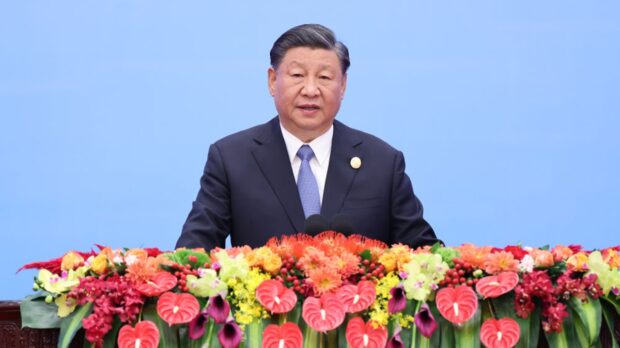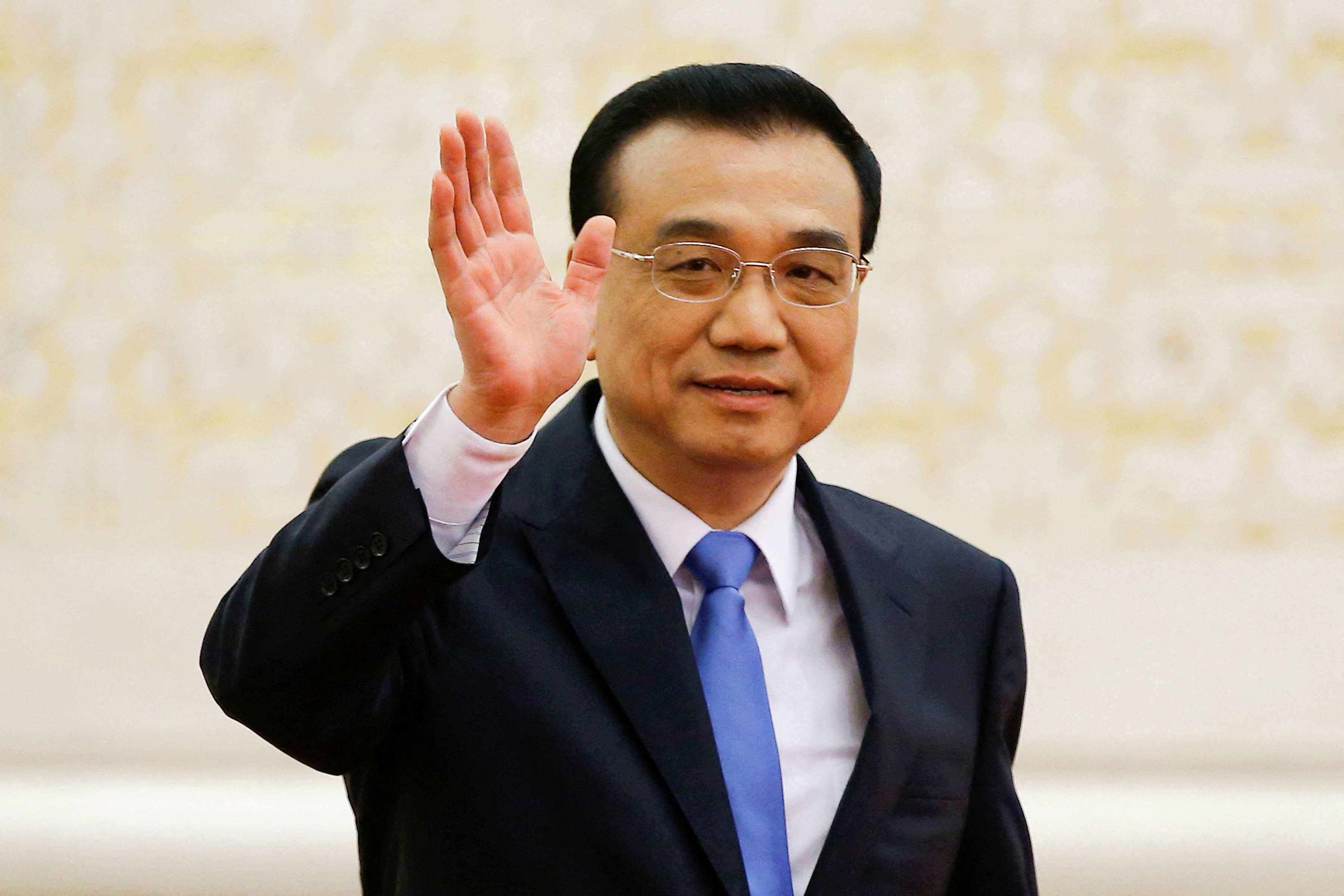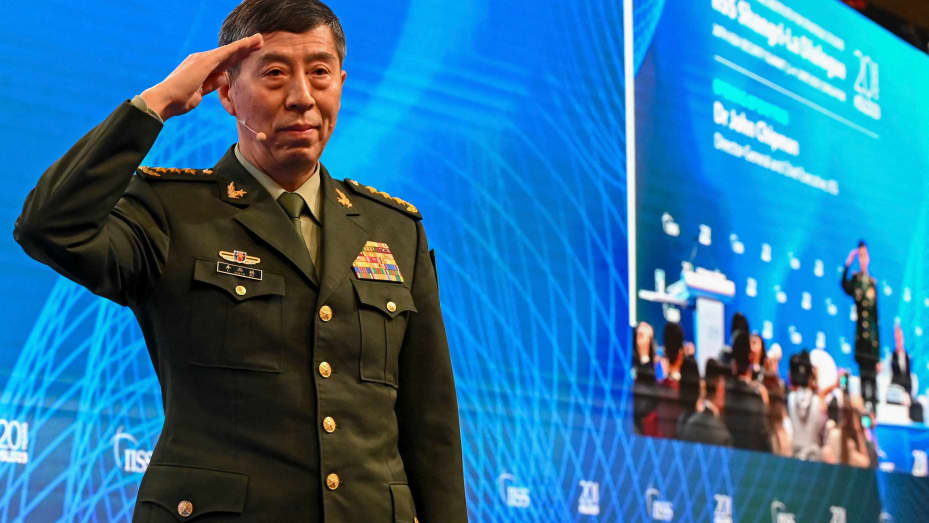A RARE QUIETER WEEK FOR CHINA’S XI – AS HE PREPARES TO BURY LONG-SERVING EX-PREMIER LI KEQIANG – LETS THE DUST SETTLE ON THE SACKING OF DEFENSE MINISTER LI SHANGFU
Written by Wong Choon Mei, Politics Now!
KUALA LUMPUR (Politics Now!) – It looks like this week will be a more sedate and somber one for hyper-active and super-successful China, now arguably the world’s top superpower.
Fresh from hosting the massive Belt and Road Forum attended by more than 4,000 delegates from over 140 nations and sending another 3 taikonauts to its famous Tiangong space station – it is now preparing to bury a long-serving premier and let the dust settle on the rare sacking of a defense minister.
Li Keqiang, who served under President Xi Jinping for a decade from 2013, before retiring in March died of a sudden heart attack at the age of 68.
“Li recently had a rest in Shanghai. On Oct. 26, Li had a sudden heart attack and passed away at 00:10 on Oct. 27 after all rescue measures failed,” said the state-controlled Global Times.
Li Keqiang
An obituary will be issued later for Li, who was also a member of the Standing Committee of the Political Bureau of the 17th, 18th and 19th Communist Party of China (CPC) central committees, added the Global Times.
An economist who studied at the elite Peking University, Li was once viewed as a top leadership contender, but was not able to hang onto his spot in the CPC’s intensely competitive power race and lost influence in recent years.
IN BEIJING’S CORRIDORS OF POWER – THE LI SHANGFU ‘OUSTER’
Li Shangfu
Meanwhile, in the corridors of power in Beijing, the rumor mills continue to grind – fanned by an actively speculative Western media – over the sacking of defense minister Li Shangfu.
Some have painted Shangfu’s ouster as a power struggle within the CPC, aimed to whittle down Xi’s almost overarching influence in the country.
Others saw it as Xi sending out a ‘without fear or favor’ message down the ranks of his government to root out corruption and enforce to-down discipline in the ranks. And at the same time, take the wind out from under the sails of his rivals in the CPC.
“It is as usual a smart and broad-visioned move by Xi. He stands out way above all other leaders including in the West and achieves what no other leader in the world ever has, mainly because he doesn’t mix work with personal interests,” a geopolitical writer who focuses on China told Politics Now!
“When under pressure, Xi behaves and reacts very well, You won’t see him using dirty tricks or abusing his power. He is always careful to do what is seen to be needed to be done and in a fair and balanced way befitting a country as powerful and huge and with such an ancient civilization as China. That’s why with the Chinese people, he has no challenger.”
Shangful was considered to be Xi’s blue-eyed boy and his meteoric rise would not be possible without Xi’s approval.
XI SENDING A ‘WITHOUT FEAR OR FAVOR’ SHIVER DOWN THE RANKS?
Indeed, it was Xi who personally authorized Li’s dismissal, with the National People’s Congress Standing Committee — the nation’s top legislative body — removing Li from his position on Tuesday. No reason was given.
“The ouster may have been connected to improprieties in military procurement,” said the Nikkei Asia.
In July, a probe into “disciplinary violations” was announced by the Equipment Development Department of the Central Military Commission (CMC).
The investigation was related to bids and contracts for equipment dating back to October 2017. The timing was eye-catching as Shangfu had led the department since September 2017.
“Senior officials with authority over bids and contracts are often tempted toward corruption,” a source in Japan’s national security community was reported as saying.
China usually replaces its defense ministers, who are mainly responsible for military diplomacy, once every five years in tandem with the twice-a-decade congress convened by the Communist Party.
Li’s two immediate predecessors, Wei Fenghe and Chang Wanquan, served full five-year terms. Li lasted only about seven months.
ANTI-CORRUPTION DRAGNET
Also in July, China had replaced two top officers in the People’s Liberation Army’s Rocket Force, which oversees nuclear and missile operations. The South China Morning Post, a Hong Kong daily, reported late that month that three officers were targeted in a corruption investigation.
It has been reported in the Chinese media that Beijing had allocated a massive budget to the Rocket Force to conduct equipment development and procurement,
This year, Xi personally conducted inspection tours of military bases five times, calling for party control over the military. On a July visit to an air force facility in Chengdu, he made an appeal for “firmly” pressing ahead with anti-corruption efforts.
Since coming to power in 2012, Xi has pushed an anti-corruption campaign that has ensnared Xu Caihou, a former CMC vice chairman who was stripped of his party membership in 2014. Xu, who died the following year, was accused of abusing his position to accept bribes.
The party also expelled Guo Boxiong, another former CMC vice chairman, in 2015 for promoting officers in exchange for favors. In 2018, the party revoked the memberships of Fang Fenghui and the late Zhang Yang, two former generals accused of graft.
UNPRECEDENTED BREADTH & DEPTH OF VISION
Xi’s leadership has been unique and unprecedented in that he has not only been able to lift China to the top rungs in world power. The breadth and depth of China’s reach and superiority – economic, trade, military, space, diplomatic and education – are amazing, with experts calling it unsurpassed and unseen before in world history.
Yet Xi is also careful to stay focused on enforcing strict discipline in the military, perhaps because as China watchers say, he sees the CCP’s ability to control the armed forces as being directly to a leader’s power base.
So too did his predecessors Mao Zedong and Deng Xiaoping.
Mao, the founder of the People’s Republic of China, was a charismatic leader who retained control over the CMC even after stepping down as head of state, thus remaining the most powerful figure in the country.
Deng was China’s paramount leader who ushered in reform and opened up the economy. But he never formally took the leadership posts for the Communist Party and the government. Instead, he wielded his CMC chairmanship to maintain his authority.
Written by Wong Choon Mei, Politics Now!
Politics Now!


